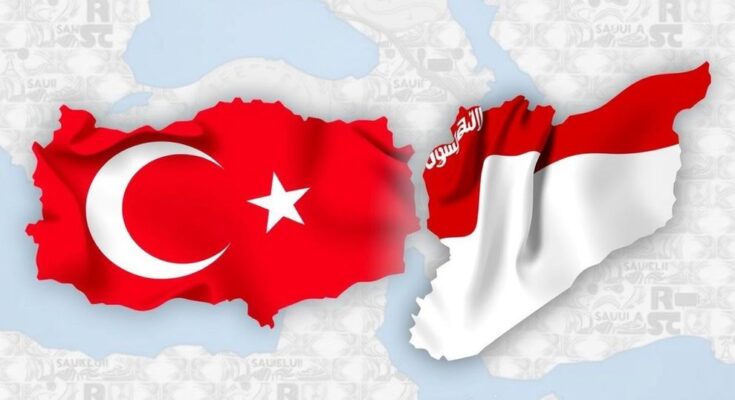Turkey is pursuing support from Saudi Arabia and the UAE to stabilize Syria after the fall of Assad. Officials advocate for a neutral government that addresses regional concerns and fosters cooperation, distancing itself from Iranian and Turkish dominance, while negotiating reconstruction aid from Gulf nations and promoting dialogue with Russia. Turkey’s involvement with HTS raises questions about its influence in shaping the new governance in Syria.
Turkey is actively seeking support from Saudi Arabia and the United Arab Emirates (UAE) to shape the future of Syria following the swift demise of Bashar al-Assad’s regime. Turkish officials are cautious, aiming to avoid the disarray witnessed during the Arab Spring, and acknowledge the importance of collaboration with regional allies and Western powers to ensure stability in Syria, a nation with a population of 20 million. President Recep Tayyip Erdogan is specifically focusing on engaging Gulf states that have historically been skeptical of groups like the Muslim Brotherhood, stressing the need to heed the concerns of Saudi Arabia and the UAE regarding Syria’s governance.
Erdogan is scheduled to participate in a summit in Cairo, where discussions regarding Syria’s political landscape will take place with Egyptian President Abdel Fattah el-Sisi, who has shared reservations about the rising influence of Hay’at Tahrir al-Sham (HTS) in Syria. While Turkey has often denied direct support for HTS, it has not concealed its influence over the group, with Erdogan reportedly offering military and logistical assistance in efforts to stabilize Syria. Turkish Foreign Minister Hakan Fidan has emphasized Turkey’s unique understanding of HTS, further solidifying Ankara’s position in the evolving Syrian context.
Simultaneously, Turkey is advocating for a neutral governance structure within Syria that does not threaten neighboring countries, explicitly calling for Israel to cease airstrikes against former Assad military positions. Fidan has articulated Turkey’s desire for cooperation among regional powers to establish a new order in the Middle East, rejecting both Iranian and Turkish domination. Turkey’s engagement with the UAE marks a notable shift in rhetoric from Gulf leaders who previously endorsed Assad’s reintegration into the Arab League.
Turkey’s collaborative efforts extend to international stakeholders, including the European Union, which has expressed willingness to participate in Syria’s recovery initiatives. While funding from Gulf nations is pivotal for reconstruction, the enduring presence of Russian military forces in Syria poses a challenge, with numerous EU members advocating for a Russian withdrawal before committing to support Syria’s new administration. Turkey is hopeful that Russia will recognize the HTS-led governance and contribute to the stabilization process in Syria.
The situation in Syria has been tumultuous since the outbreak of civil unrest in 2011, culminating in a protracted conflict that has caused significant humanitarian crises. Bashar al-Assad’s regime initially appeared to be on the verge of collapse, leading to a complex geopolitical landscape involving various state and non-state actors. Turkey’s role has evolved as it navigates alliances in a region marked by competing interests, particularly the influence of Iranian and Russian forces. Recently, Turkey has focused on ensuring that any new governance in Syria is inclusive and does not pose threats to the security of its neighbors, nor to its own interests in the region.
In summary, Turkey’s efforts to engage Saudi Arabia and the UAE reflect a strategic initiative aimed at stabilizing Syria post-Assad. By seeking regional support and advocating for a neutral governance framework, Turkey aims to establish cooperation that could mitigate sectarian tensions and external interference. As Turkey navigates these complex geopolitical dynamics, the integration of regional powers alongside international stakeholders remains crucial for the effective reconstruction and stabilization of Syria.
Original Source: www.middleeasteye.net




